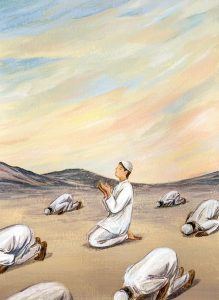James Wood at The New Yorker:
 In several respects, John Wray’s “Godsend” (Farrar, Straus & Giroux) appears to be a conventional specimen: a compact, tautly written novel of travel and growth, about a troubled eighteen-year-old California woman who leaves home and sets out on an arduous, sometimes terrifying journey. Formally, everything fits into place: lean dialogue, attentive description, nicely paced interiority, deft characterization—all the right contemporary rations. Wray’s publisher calls it “a coming-of-age novel like no other,” and the reader prepares for a decent chunk of Californian Bildung. But Wray’s story is in fact indecently unconventional. Our heroine leaves not for, say, New York but for a madrassa in Pakistan, and then joins the Taliban, across the border in Afghanistan. She “grows,” she comes of age, but the journey will strike most readers as a distinctly unsentimental education. “Godsend,” which begins like a recognizable combination of bildungsroman and adventure tale, becomes much stranger and more original after it arrives in Pakistan, discovering within itself a profound understanding of the demands of religious practice—of religious submission, especially—which has eluded almost every serious contemporary American novelist since 9/11. It is not only Wray’s heroine but also his novel that comes of age, steadily deepening and astounding as it develops.
In several respects, John Wray’s “Godsend” (Farrar, Straus & Giroux) appears to be a conventional specimen: a compact, tautly written novel of travel and growth, about a troubled eighteen-year-old California woman who leaves home and sets out on an arduous, sometimes terrifying journey. Formally, everything fits into place: lean dialogue, attentive description, nicely paced interiority, deft characterization—all the right contemporary rations. Wray’s publisher calls it “a coming-of-age novel like no other,” and the reader prepares for a decent chunk of Californian Bildung. But Wray’s story is in fact indecently unconventional. Our heroine leaves not for, say, New York but for a madrassa in Pakistan, and then joins the Taliban, across the border in Afghanistan. She “grows,” she comes of age, but the journey will strike most readers as a distinctly unsentimental education. “Godsend,” which begins like a recognizable combination of bildungsroman and adventure tale, becomes much stranger and more original after it arrives in Pakistan, discovering within itself a profound understanding of the demands of religious practice—of religious submission, especially—which has eluded almost every serious contemporary American novelist since 9/11. It is not only Wray’s heroine but also his novel that comes of age, steadily deepening and astounding as it develops.
more here.
